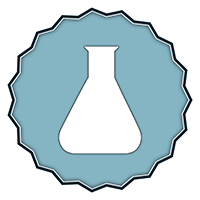Stephen Loyd, like most of his college contemporaries, was struggling to keep up with his rigorous course work. He found it to be stressful beyond words. It was just by chance that someone passed him an opioid painkiller.
The experience forever changed his life. He continued to take opioids through his residency and well into his career as an Internist – taking up to 100 pills a day. After his father intervened, Dr. Loyd was reported to have entered a ‘special’ rehab program for doctors.
Health care practitioners learned early on that addiction knows no boundaries. Doctors, nurses and others in the field were especially vulnerable because of their easy access to prescription opioids and the lack security around the deadly drugs. Healthcare professionals with promising careers found themselves on the street without a job because they became addicted to the very same opioid drugs they prescribed or administered to their patients.
It was in the early 70s when the Physicians Healthcare Plan (PHP) was initiated to help rehabilitate doctors who had succumbed to these highly addictive drugs. A short time later, programs were developed for nurses and other healthcare professionals with addictions. But these programs were not the same as those available to you and me. The vast majority of the PHP programs required a minimum of 90 days of inpatient treatment that quite often turned into 180 days. In addition, there is a structured aftercare plan that can last for up to 3 years or more from what I have been told.
Yet with this seminal knowledge, we find ourselves in the midst of the 30 day addiction treatment myth. This begs the question, if 90 to 180 days of inpatient therapy with a long term comprehensive aftercare plan is required of our best and brightest, how much therapy would be appropriate for someone what is not a doctor or nurse who have spent years and decades studying the mechanisms of disease and healing? Any intellectually honest person would conclude more comprehensive therapy is necessary including a medical and psychological spiritual component.
The 30 day inpatient program was initially designed to treat alcoholics. The plan was developed in the mid 50’s by two men, neither of whom were doctors or had any prior experience treating addiction or alcoholism, at a Minnesota state mental hospital; ergo “The Minnesota Model.” The program showed positive results and spread to treatment centers across the country. Insurance companies accepted the 30 day program as a treatment standard. Keep in mind this was the 50s when alcoholism raged and opioid addiction was nearly non-existent.
Today we face bigger challenges. The beginning of the opioid epidemic coincides with the launch of pharmaceutical painkillers and designer drugs in the mid 1990s. Every year since opioid and designer drug abuse has grown exponentially. Treatment centers are filled with people addicted to drugs; yet treatment protocols remain firmly rooted therapies for alcoholism. The healthcare field and the insurance companies have not adjusted to the realities of this epidemic.
The clear and simple reality is that 30 days of addiction treatment is just not enough. I have been involved in hands-on addiction treatment for well over thirty-years and can tell you first hand that 30 days are an inadequate amount of time to treat someone addicted to drugs. When I owned and operated G & G Holistic Addiction Treatment Center we always encouraged addicts to stay in nearby recovery homes after their treatment. We also had an ‘Aftercare For Life’ program for everyone who went through our program. Often they would stay for up to 90 days.
We know how to fix this; we know what to do. The Physicians Healthcare Plan – which has a 76% success rate – lays out the road map for effective addiction treatment. However, the addiction treatment field and the insurance industry’s failure to conform to programs build on evidence based and scientifically proven modalities have open the door to an entirely new concept in aftercare treatment.
Please don’t get me wrong, recovery homes done correctly do a terrific job of helping addicts find recovery. What I am talking about is a new concept in aftercare, a hybrid aftercare recovery program that fills the void created by the 30 day model between treatment centers and recovery homes. This new concept picks up where 30 day addiction treatment ends. It acts more like an extension of treatment than it does a recovery home. It’s an action program for dealing with life on life’s terms.
These hybrid aftercare recovery programs build on what was started 30 days before in treatment. Anyone who has been in treatment will tell you their days are full. There is a lot of information for them to absorb. Unfortunately, the brevity of 30 days doesn’t allow enough time to embellish on what is being taught. The adverse consequence is that addicts either get it or don’t.
There is also brain function to consider. Drug abuse is so destructive to the brain that it can take up to three years before function returns to normal. That being said, how much information an addict can absorb, comprehend and apply varies from person to person.
This is where the new hybrid aftercare recovery program comes in. They continue the continuity established at the treatment facilities. People are still expected to go to meetings daily and visit regularly with counselors – and the obligatory urine tests and so on. In addition, this new program teaches the same exact principles you’d find in a quality 30 day program in addition to a comprehensive life enhancement wellness program. Because addicts have already been exposed to these essential fundamentals this new program has the ability to go into greater detail and explanation in conjunction with a comprehensive live recovery program.
But where these new hybrid aftercare recovery centers differentiate themselves is in the additional services they provide. More often than not they treat co-contributing factors to addiction and teach life skills.
Bear in mind that addicts need to relearn nearly everything. For some it’s something as simple as boiling an egg. But for most it’s a lot more challenging than that. They have to prepare themselves to repair their relationships with family and loved ones. Many need to learn how to in interview for a job or how to reenter their old workplace. These and other skills are often taught in the new hybrid aftercare recovery program.
Moreover, these new concept is much more likely to delve into co-contributing factors to addiction than most other aftercare facilities. For example, we know that addiction is an imbalance of the brain’s chemistry that often involves the neurotransmitter Dopamine. A proper regiment of the correct amino-acid and vitamin supplements can help correct this issue.
This may sound strange to you but the latest science shows that the gut may play a role in depression, anxiety and addiction. Leaky gut syndrome interferes with the body’s natural absorption and distribution of essential vitamins and minerals which could lead to depression and addictive behaviors. Correcting this can have an effect on behavior.
Exercise is another staple of the new hybrid aftercare recovery centers. I cannot emphasis how important exercise is to your overall well being regardless if you are an addict or not. It reduces stress, improves dopamine function, keeps your body and brain chemistry balanced, your muscles tone and rids your body of dangerous toxins. Exercise can help with and extend recovery. Drug and alcohol abuse tears up the body and brain – exercise is the top of the list of things you can do to repair it.
These are just a few of the many evidenced-based and scientifically proven effective modalities and services being offered by the new hybrid aftercare recovery program. I am encouraged by what I am seeing. Overcoming addiction is a process of application and action. Even though treatment centers are providing a good foundation for recovery, I believe it is the continued guidance, teachings and repetition that can make the greatest contribution to an individuals recovery – much like the Physicians Healthcare Plan (PHP) 90 to 180 day program. And this is exactly what the new hybrid aftercare recovery program does.
John Giordano, Doctor of Humane Letters, MAC, CAP, is the founder of ‘Life Enhancement Recovery Center,’ an Addiction Treatment Consultant, President and Founder of the National Institute For Holistic Addiction Studies, Chaplain of the North Miami Police Department and is the Second Vice President of the Greater North Miami Chamber of Commerce. He is on the editorial board of the highly respected scientific Journal of Reward Deficiency Syndrome (JRDS) and has contributed to over 65 papers published in peer-reviewed scientific and medical journals.


